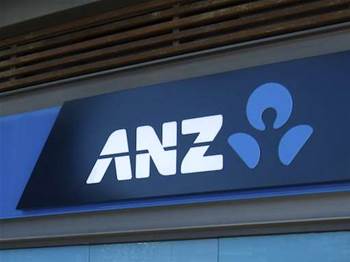The emergence of the first fraud case linked to the early release of superannuation has underscored the need for vigilance against similar schemes targeting COVID-related government assistance programs.
That vigilance was on display in an industry event run by financial data and software provider Refinitiv yesterday, where details of the fraud case that is now in the hands of the Australian Federal Police first emerged.
Initial intelligence to investigate the incident came from the Fintel Alliance, a private-public group of banks, government agencies and the like that is overseen by AUSTRAC.
Anticipating the potential for fraud schemes to appear, the Alliance mobilised quickly to engage the ATO and Services Australia as assistance programs like JobKeeper and early access to superannuation were unveiled as part of the Government's pandemic response.
ANZ's head of financial crime intelligence Milan Gigovic told the event the Alliance wanted “to start a dialogue around potential risks associated with the various government stimulus payments ...and what industry needs to be on the lookout for in terms of risk indicators.”
“We've been able to have those open discussions because the trust is there,” Gigovic said.
“We're able to bounce ideas off each other about how we could potentially improve the control environment and how we could be better enabled to detect payments that may be linked to fraudulent activity."
Gigovic pointed to ANZ playing a role in early investigation of the fraud scheme targeting early access to super, using intelligence from the Fintel Alliance.
"Just this week, through some intelligence that was disseminated through the Fintel Alliance, we were able to identify unusual payments linked to the early release of superannuation and these details were rapidly escalated to AUSTRAC, the ATO and the AFP, and we’ve seen some positive action and results on the back of that," Gigovic said.
In return, Gigovic said ANZ - and other banks - were similarly contributing intelligence back up into the Alliance.
"What’s important in the Fintel Alliance is that it is a partnership," he said.
"Through the use of our data and link analysis capability, we’ve been able to provide some really useful insights back to the Alliance from an ANZ perspective - and other banks have done the same - around what are we seeing, how do we think the criminals are operating, where are they operating from, and where do we think they’re going to head to next."
Gigovic also said the Fintel Alliance had disseminated “a number” of risk indicator reports to participants “over the past month or so … covering risks associated with scams [around] the early release of super, JobKeeper payments, and other frauds, which have enabled us to prepare for what's potentially coming our way.”
“We've been able to take those papers or those indicators back to our home organisation, use them to train our investigators, and importantly look at new agile ways to detect potential fraudulent activity,” he said.
Gigovic said the Alliance also shared risk indicator reports with stakeholders outside of the immediate membership group, to aid whole-of-industry preparedness.
“For example, the early release of super indicators report not only [went out] to members but it also was disseminated to over 170 super bodies in Australia,” he said.
AUSTRAC's national manager for regulatory operations Nathan Newman told the same event that COVID-related scams were occurring worldwide.
"Criminals are very adaptable and they'll use whatever the operating environment is to test us. Being able to get on the front foot is always going to be a challenge with that sort of rapid movement," Newman said.
"Certainly some of our international partners are seeing some of the risks such as misdirection of government funds, for example.
'We know there's many governments around the globe who are putting out stimulus measures and contributing new forms of government assistance to their citizens, and criminals are exploiting that as well on a global scale."
ANZ runs financial crime intelligence remotely
As ANZ shifted to an almost fully work-from-home scenario due to the COVID-19 pandemic, Gigovic said the bank’s AML investigations and sanctions operations areas were afforded high priority in the transition.
“My team's responsible for running fairly big data crunching queries across the many databases we have in the bank, specifically looking for trends and different patterns of criminal behaviour,” he said.
“Now, having the ability to do that from home means our productivity has not been impacted, and the fact that we don't have to travel to and from work I think many teams are actually experiencing an increase in productivity as well.”
Gigovic said it was important to have the AML and sanctions operations working and investigating alerts, filing suspicious matter reports (SMRs) with AUSTRAC, and continuing to process payments for customers at pre-COVID levels.
“So we did a few things, such as design new reporting metrics to get a more granular view of how we were tracking, and we identified staff outside of the BAU AML inspections team that could support those critical functions and be on standby in case they were needed,” he said.
“So, now, thankfully, our AML and sanctions teams have done a tremendous job to keep the volumes at pre-COVID levels, but importantly we do have the agility to pivot resources where we need them, particularly to those what we deem as priority areas.
“So, knock on wood, we're tracking [transactions] as we should, and we're hoping it stays that way.”


.jpg&h=140&w=231&c=1&s=0)























